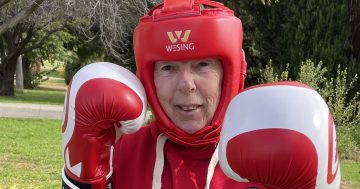Good day fellow Canberrans!
The usual, long.. long time reader and first time poster. I’m a bit up the creek and wasn’t too sure about where to check first so thought I’d give this a go first before making a fool out of myself at the pharmacy for asking for something that I can’t get without a prescription. I have this speech coming up in a months time (For which I have been preparing for the past one month) and I’m not much of a public speaker, I usually start sweating within the first few seconds whenever I get up there and start babbling soon as the sweat kicks in.
I’ve never been on any kind of medication, no drugs, not a smoker, hardly any alcohol (Yes, and I’m 24) so you can say I’m clean as a whistle. What I’m looking for is something that can help me relax and get me through my speech smoothly without sweating or losing my breath. If anybody has any recommendations which I can get over the counter here in Canberra and is preferrably herbal (Not sure if that’s the right term though), that would be greatly appreciated.
Also on a side note, please try and refrain from the wise-assed comments as you know, we’ve heard em all.
Thanks in advance!




















